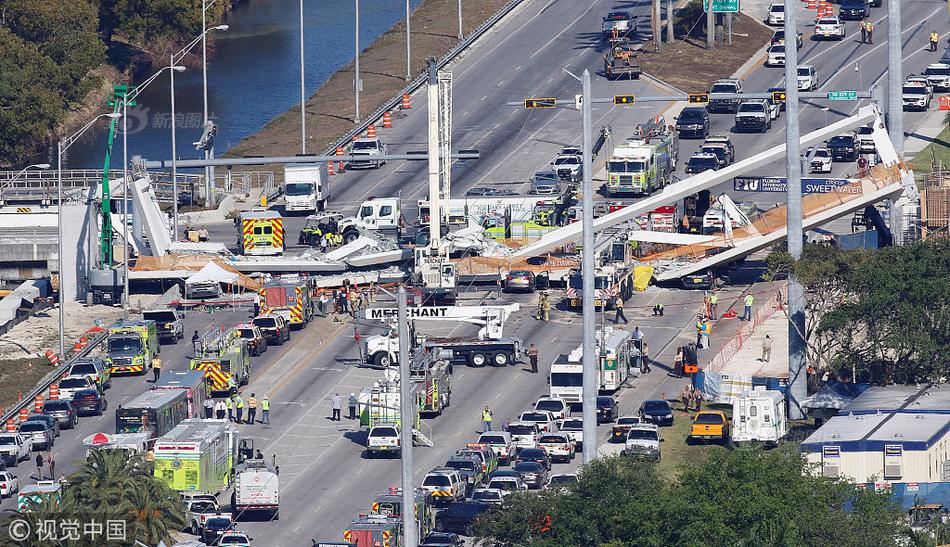
1. The failure of the temperature sensor or temperature regulator; the reason for the buzzing of the car at low speed or variable speed is that the gap between the piston and the cylinder wall is too large; the buzzing at high speed is caused by the sound Caused by vibration. The temperature sensor or temperature regulator has failed.
2. Most of the reasons why the car buzzes at low speed or when changing gears are caused by the excessive gap between the piston and the cylinder wall. During the installation process, when the installation configuration is too tight and there is abnormal wear, there will be a buzzing phenomenon. Another reason is that the engine explodes on the cylinder, which may be caused by early ignition angle or more carbon accumulation in the cylinder.
3. Other reasons: gearbox problems: accelerationThe buzzing sound is not always caused by the engine, and it may also be caused by friction due to the wear of the gearbox bearing and the reduction of lubricant.
4. The car will make a buzzing sound when driving, and speed is the cause of this situation. Among them, the common reasons are as follows: the wheel bearing of the car is worn or loose. The tire was partially worn or eaten. Wheel bearings are one of the most important parts of the vehicle, which can make the wheels run freely.

1. The reason for the buzzing of low-speed or variable-speed cars is the piston and cylinder wall The gap is too big. During the installation process, when the assembly is too tight and there is abnormal wear, there will be buzzing. Another reason is that the engine knocks on the cylinder. The engine knocks on the cylinder in the initial stage, which may be caused by the early ignition angle or the accumulation of more carbon in the cylinder.
2. Most of the reasons why the car buzzes at low speed or when changing gears are caused by the excessive gap between the piston and the cylinder wall. During the installation process, when the installation configuration is too tight and there is abnormal wear, there will be a buzzing phenomenon. Another oneThe reason is that the engine bursts on the cylinder, which may be caused by the early ignition angle or more carbon accumulation in the cylinder.
3. The reason for the engine buzzing: the engine buzzing at idle: it may be the sound made by the work of the electronic fan for water tank heat dissipation, but this sound is indirect. If the buzzing has been there, it may be a malfunction of the temperature sensor or the temperature regulator.
4. The abnormal sound of the bearing is a regular buzzing sound, such as the engine tightening wheel, idler, etc. At this time, the relevant parts need to be replaced. Only by figuring out the real reason for the loud engine noise can we "put the right medicine" and avoid the waste of oil and the increase in vehicle maintenance costs caused by blindly replacing the oil.
5. The temperature sensor or temperature regulator fails;The reason for the buzzing of the car at low speed or in variable speed is caused by the excessive gap between the piston and the cylinder wall; the buzzing in the state of high-speed operation is caused by sound resonance. The temperature sensor or temperature regulator is faulty.
6. What is the reason for the loud buzzing sound of the engine? The temperature sensor or temperature regulator fails; the reason why the car buzzes at low speed or in variable speed is that the gap between the piston and the cylinder wall is too large; the buzzing at high speed is caused by sound resonance. The temperature sensor or temperature regulator has failed.
Most of the reasons for the buzzing sound when the car is low or changing gears are caused by the excessive gap between the piston and the cylinder wall. During the installation process, when the installation configuration is too tight and there is abnormal wear, there will be a buzzing phenomenon.Another reason is that the engine explodes on the cylinder, which may be caused by early ignition angle or more carbon accumulation in the cylinder.
The reason for the loud buzzing of the engine: temperature sensor failure, excessive gap between the piston and cylinder wall, and improper oil selection. Temperature sensor failure Engine buzzing when idling: When the car is idling normally, the buzzing may be caused by the work of the electronic fan in the water tank, but this noise is indirect.
The failure of the temperature sensor or temperature regulator; the reason for the buzzing of the car at low speed or variable speed is caused by the excessive gap between the piston and the cylinder wall; the buzzing at high speed is caused by sound resonance. The temperature sensor or temperature regulator is faulty.
The reason for the buzzing of low-speed or variable-speed cars is that the gap between the piston and the cylinder wall is too large. During the installation process, when the assembly is too tight and there is abnormal wear, there will be buzzing. Another reason is that the engine knocks on the cylinder. The engine knocks on the cylinder in the initial stage, which may be caused by the early ignition angle or the accumulation of more carbon in the cylinder.
Most of the reasons why the car makes buzz at low speed or when changing gears are caused by the excessive gap between the piston and the cylinder wall. During the installation process, when the installation configuration is too tight and there is abnormal wear, there will be a buzzing phenomenon. Another reason is that the engine explodes on the cylinder, which may be caused by early ignition angle or more carbon accumulation in the cylinder.
The engine is suitable for bothPower generator, which can also refer to the whole machine including the power unit (such as gasoline engine, aircraft engine).
The foot glue is aging or loose; improper oil use; insufficient engine cylinder; carbon and sludge will increase the operating resistance of the engine, etc., which will make the engine louder. Common reasons and solutions for loud engine noise: aging or looseness of the foot glue. Foot glue is a rubber block between the engine and the frame.
There are three main reasons why the sound of the car engine becomes louder: the noise white sound generated by acceleration. To judge whether these noises are normal, the best way is to compare the difference between new and old noises whether you have heard similar noises before.If the noise of the whole vehicle is too loud, there may be a problem. Belt noise.
What are the reasons why the sound of the car engine becomes louder? The screw of the lower guard plate of the engine is loose. When we fixed him, the strange sound disappeared! The plastic parts in the engine compartment are loose. For example, the engine cover, intake pipe, etc., just tighten it. The engine belt makes a strange sound.
The reasons are as follows: it is not lubricated enough when the cold car starts, and the hydraulic column and mechanical rocker arm fail to work properly, resulting in a rattling sound. The condition of the oil is not right: if the viscosity of the oil is too high or too low, the engine will make noise. The belt is not elastic enough: the engine makes a squeaky sound at work.
The engine is very noisy during cold start. When the car is parked for a long time and started, the engine will vibrate violently and then make a "da-da" sound.
The reason for the loud noise of the car engine: the first reason: the foot glue is aging or loose; the foot glue is the rubber block cushioned between the engine and the frame. Its function is to reduce the vibration and buffering of the engine during work, and to fix the engine.
1. The reason why low-speed or variable-speed cars make buzz is that the gap between the piston and the cylinder wall is too large. During the installation process, when the assembly is too tight and there is abnormal wear, there will be buzzing. Another reason is that the engine knocks on the cylinder. The engine knocks on the cylinder in the initial stage, which may be caused by the early ignition angle or the accumulation of more carbon in the cylinder.
2. Most of the reasons why the car buzzes at low speed or when changing gears are caused by the excessive gap between the piston and the cylinder wall.During the installation process, when the installation configuration is too tight and there is abnormal wear, there will be a buzzing phenomenon. Another reason is that the engine explodes on the cylinder, which may be caused by early ignition angle or more carbon accumulation in the cylinder.
3. The reason for the engine buzzing: the engine buzzing at idle: it may be the sound made by the work of the electronic fan for water tank heat dissipation, but this sound is indirect. If the buzzing has been there, it may be a malfunction of the temperature sensor or the temperature regulator.
4. The abnormal sound of the bearing is a regular buzzing sound, such as the engine tightening wheel, idler, etc. At this time, the relevant parts need to be replaced. Only by figuring out the real reason for the loud engine noise can we "put the right medicine" and avoid the waste of oil and the increase in vehicle maintenance costs caused by blindly replacing the oil.
5. The failure of the temperature sensor or temperature regulator; the reason for the buzzing of the car at low speed or variable speed is caused by the excessive gap between the piston and the cylinder wall; the buzzing in the state of high-speed operation is caused by sound resonance. The temperature sensor or temperature regulator is faulty.
Casino Plus GCash login-APP, download it now, new users will receive a novice gift pack.
1. The failure of the temperature sensor or temperature regulator; the reason for the buzzing of the car at low speed or variable speed is that the gap between the piston and the cylinder wall is too large; the buzzing at high speed is caused by the sound Caused by vibration. The temperature sensor or temperature regulator has failed.
2. Most of the reasons why the car buzzes at low speed or when changing gears are caused by the excessive gap between the piston and the cylinder wall. During the installation process, when the installation configuration is too tight and there is abnormal wear, there will be a buzzing phenomenon. Another reason is that the engine explodes on the cylinder, which may be caused by early ignition angle or more carbon accumulation in the cylinder.
3. Other reasons: gearbox problems: accelerationThe buzzing sound is not always caused by the engine, and it may also be caused by friction due to the wear of the gearbox bearing and the reduction of lubricant.
4. The car will make a buzzing sound when driving, and speed is the cause of this situation. Among them, the common reasons are as follows: the wheel bearing of the car is worn or loose. The tire was partially worn or eaten. Wheel bearings are one of the most important parts of the vehicle, which can make the wheels run freely.

1. The reason for the buzzing of low-speed or variable-speed cars is the piston and cylinder wall The gap is too big. During the installation process, when the assembly is too tight and there is abnormal wear, there will be buzzing. Another reason is that the engine knocks on the cylinder. The engine knocks on the cylinder in the initial stage, which may be caused by the early ignition angle or the accumulation of more carbon in the cylinder.
2. Most of the reasons why the car buzzes at low speed or when changing gears are caused by the excessive gap between the piston and the cylinder wall. During the installation process, when the installation configuration is too tight and there is abnormal wear, there will be a buzzing phenomenon. Another oneThe reason is that the engine bursts on the cylinder, which may be caused by the early ignition angle or more carbon accumulation in the cylinder.
3. The reason for the engine buzzing: the engine buzzing at idle: it may be the sound made by the work of the electronic fan for water tank heat dissipation, but this sound is indirect. If the buzzing has been there, it may be a malfunction of the temperature sensor or the temperature regulator.
4. The abnormal sound of the bearing is a regular buzzing sound, such as the engine tightening wheel, idler, etc. At this time, the relevant parts need to be replaced. Only by figuring out the real reason for the loud engine noise can we "put the right medicine" and avoid the waste of oil and the increase in vehicle maintenance costs caused by blindly replacing the oil.
5. The temperature sensor or temperature regulator fails;The reason for the buzzing of the car at low speed or in variable speed is caused by the excessive gap between the piston and the cylinder wall; the buzzing in the state of high-speed operation is caused by sound resonance. The temperature sensor or temperature regulator is faulty.
6. What is the reason for the loud buzzing sound of the engine? The temperature sensor or temperature regulator fails; the reason why the car buzzes at low speed or in variable speed is that the gap between the piston and the cylinder wall is too large; the buzzing at high speed is caused by sound resonance. The temperature sensor or temperature regulator has failed.
Most of the reasons for the buzzing sound when the car is low or changing gears are caused by the excessive gap between the piston and the cylinder wall. During the installation process, when the installation configuration is too tight and there is abnormal wear, there will be a buzzing phenomenon.Another reason is that the engine explodes on the cylinder, which may be caused by early ignition angle or more carbon accumulation in the cylinder.
The reason for the loud buzzing of the engine: temperature sensor failure, excessive gap between the piston and cylinder wall, and improper oil selection. Temperature sensor failure Engine buzzing when idling: When the car is idling normally, the buzzing may be caused by the work of the electronic fan in the water tank, but this noise is indirect.
The failure of the temperature sensor or temperature regulator; the reason for the buzzing of the car at low speed or variable speed is caused by the excessive gap between the piston and the cylinder wall; the buzzing at high speed is caused by sound resonance. The temperature sensor or temperature regulator is faulty.
The reason for the buzzing of low-speed or variable-speed cars is that the gap between the piston and the cylinder wall is too large. During the installation process, when the assembly is too tight and there is abnormal wear, there will be buzzing. Another reason is that the engine knocks on the cylinder. The engine knocks on the cylinder in the initial stage, which may be caused by the early ignition angle or the accumulation of more carbon in the cylinder.
Most of the reasons why the car makes buzz at low speed or when changing gears are caused by the excessive gap between the piston and the cylinder wall. During the installation process, when the installation configuration is too tight and there is abnormal wear, there will be a buzzing phenomenon. Another reason is that the engine explodes on the cylinder, which may be caused by early ignition angle or more carbon accumulation in the cylinder.
The engine is suitable for bothPower generator, which can also refer to the whole machine including the power unit (such as gasoline engine, aircraft engine).
The foot glue is aging or loose; improper oil use; insufficient engine cylinder; carbon and sludge will increase the operating resistance of the engine, etc., which will make the engine louder. Common reasons and solutions for loud engine noise: aging or looseness of the foot glue. Foot glue is a rubber block between the engine and the frame.
There are three main reasons why the sound of the car engine becomes louder: the noise white sound generated by acceleration. To judge whether these noises are normal, the best way is to compare the difference between new and old noises whether you have heard similar noises before.If the noise of the whole vehicle is too loud, there may be a problem. Belt noise.
What are the reasons why the sound of the car engine becomes louder? The screw of the lower guard plate of the engine is loose. When we fixed him, the strange sound disappeared! The plastic parts in the engine compartment are loose. For example, the engine cover, intake pipe, etc., just tighten it. The engine belt makes a strange sound.
The reasons are as follows: it is not lubricated enough when the cold car starts, and the hydraulic column and mechanical rocker arm fail to work properly, resulting in a rattling sound. The condition of the oil is not right: if the viscosity of the oil is too high or too low, the engine will make noise. The belt is not elastic enough: the engine makes a squeaky sound at work.
The engine is very noisy during cold start. When the car is parked for a long time and started, the engine will vibrate violently and then make a "da-da" sound.
The reason for the loud noise of the car engine: the first reason: the foot glue is aging or loose; the foot glue is the rubber block cushioned between the engine and the frame. Its function is to reduce the vibration and buffering of the engine during work, and to fix the engine.
1. The reason why low-speed or variable-speed cars make buzz is that the gap between the piston and the cylinder wall is too large. During the installation process, when the assembly is too tight and there is abnormal wear, there will be buzzing. Another reason is that the engine knocks on the cylinder. The engine knocks on the cylinder in the initial stage, which may be caused by the early ignition angle or the accumulation of more carbon in the cylinder.
2. Most of the reasons why the car buzzes at low speed or when changing gears are caused by the excessive gap between the piston and the cylinder wall.During the installation process, when the installation configuration is too tight and there is abnormal wear, there will be a buzzing phenomenon. Another reason is that the engine explodes on the cylinder, which may be caused by early ignition angle or more carbon accumulation in the cylinder.
3. The reason for the engine buzzing: the engine buzzing at idle: it may be the sound made by the work of the electronic fan for water tank heat dissipation, but this sound is indirect. If the buzzing has been there, it may be a malfunction of the temperature sensor or the temperature regulator.
4. The abnormal sound of the bearing is a regular buzzing sound, such as the engine tightening wheel, idler, etc. At this time, the relevant parts need to be replaced. Only by figuring out the real reason for the loud engine noise can we "put the right medicine" and avoid the waste of oil and the increase in vehicle maintenance costs caused by blindly replacing the oil.
5. The failure of the temperature sensor or temperature regulator; the reason for the buzzing of the car at low speed or variable speed is caused by the excessive gap between the piston and the cylinder wall; the buzzing in the state of high-speed operation is caused by sound resonance. The temperature sensor or temperature regulator is faulty.
Hearthstone arena deck Builder
author: 2025-01-08 14:26bingo plus update today Philippines
author: 2025-01-08 14:04 UEFA Champions League live streaming free
UEFA Champions League live streaming free
881.57MB
Check Free sports events uefa champions league app android
Free sports events uefa champions league app android
938.65MB
Check Hearthstone Arena win rate
Hearthstone Arena win rate
545.64MB
Check Hearthstone Arena class tier list 2024
Hearthstone Arena class tier list 2024
392.55MB
Check DigiPlus
DigiPlus
276.95MB
Check UEFA Champions League live streaming free
UEFA Champions League live streaming free
195.31MB
Check bingo plus update today
bingo plus update today
645.84MB
Check Hearthstone deck
Hearthstone deck
733.52MB
Check 100 free bonus casino no deposit GCash
100 free bonus casino no deposit GCash
316.86MB
Check UEFA Europa League
UEFA Europa League
494.52MB
Check Casino free 100 no deposit
Casino free 100 no deposit
586.55MB
Check Hearthstone Arena win rate
Hearthstone Arena win rate
478.12MB
Check TNT Sports
TNT Sports
771.34MB
Check UEFA live free
UEFA live free
582.12MB
Check UEFA live free
UEFA live free
322.62MB
Check Walletinvestor digi plus
Walletinvestor digi plus
476.44MB
Check DigiPlus fair value
DigiPlus fair value
215.44MB
Check bingo plus update today Philippines
bingo plus update today Philippines
274.13MB
Check Casino Plus login register
Casino Plus login register
971.49MB
Check UEFA EURO
UEFA EURO
126.42MB
Check UEFA EURO
UEFA EURO
941.94MB
Check Hearthstone Arena class tier list 2024
Hearthstone Arena class tier list 2024
212.39MB
Check App to watch Champions League live free
App to watch Champions League live free
789.79MB
Check casino plus free 100
casino plus free 100
872.47MB
Check UEFA Champions League live streaming app
UEFA Champions League live streaming app
732.85MB
Check LR stock price Philippines
LR stock price Philippines
185.55MB
Check Europa League app
Europa League app
462.47MB
Check UEFA Champions League standings
UEFA Champions League standings
866.27MB
Check Hearthstone Arena win rate
Hearthstone Arena win rate
662.87MB
Check UEFA TV
UEFA TV
198.33MB
Check UEFA Champions League live
UEFA Champions League live
792.61MB
Check bingo plus update today
bingo plus update today
529.51MB
Check UEFA Champions League
UEFA Champions League
452.84MB
Check Bingo Plus
Bingo Plus
644.19MB
Check Hearthstone arena class win rates reddit
Hearthstone arena class win rates reddit
643.34MB
Check UEFA live free
UEFA live free
535.34MB
Check
Scan to install
Casino Plus GCash login to discover more
Netizen comments More
1893 Free sports events uefa champions league app android
2025-01-08 13:22 recommend
152 European Cup live
2025-01-08 13:21 recommend
2654 App to watch Champions League live free
2025-01-08 12:54 recommend
1252 Hearthstone Wild Decks
2025-01-08 12:13 recommend
1852 Arena plus APK
2025-01-08 12:04 recommend